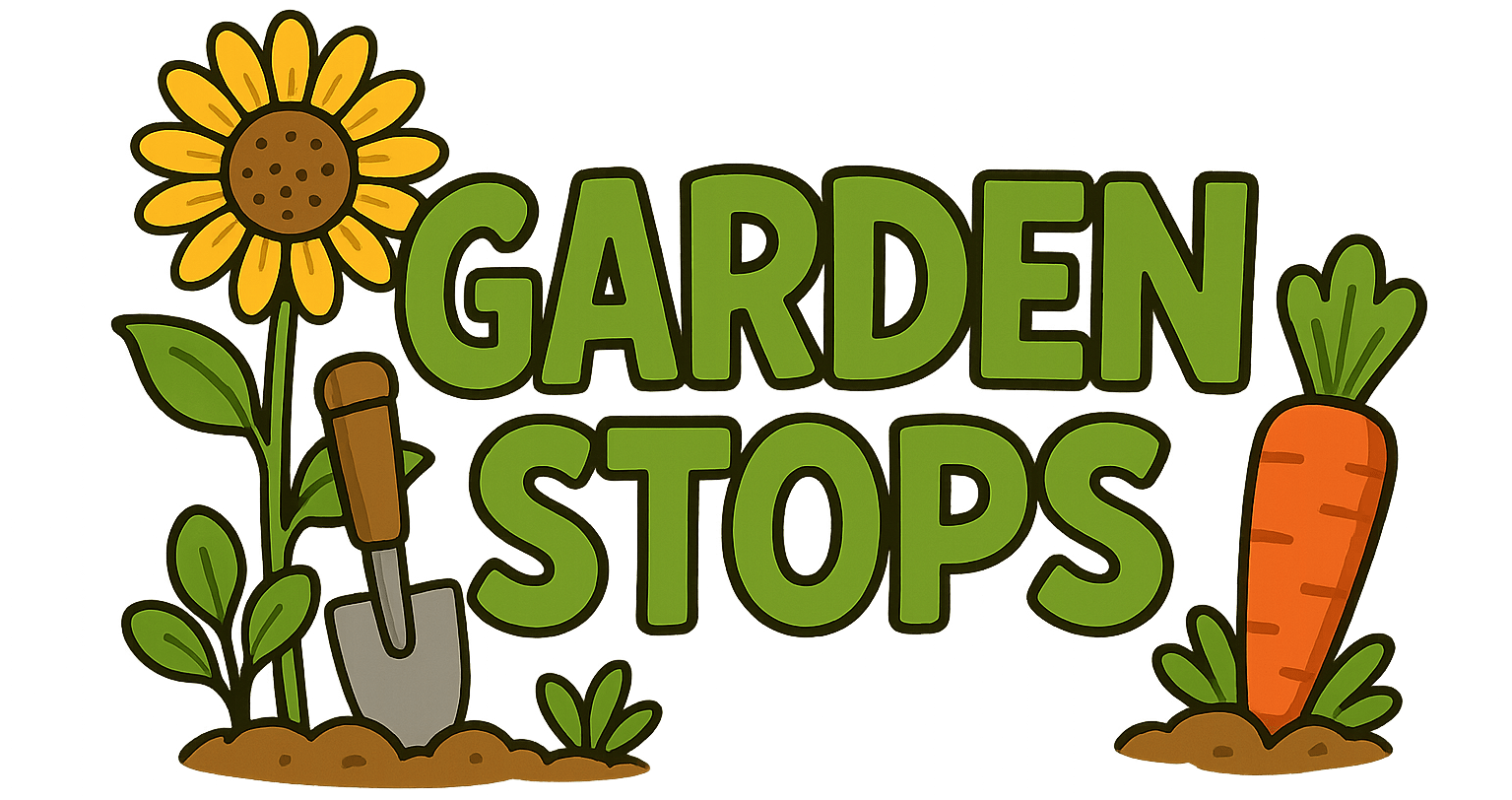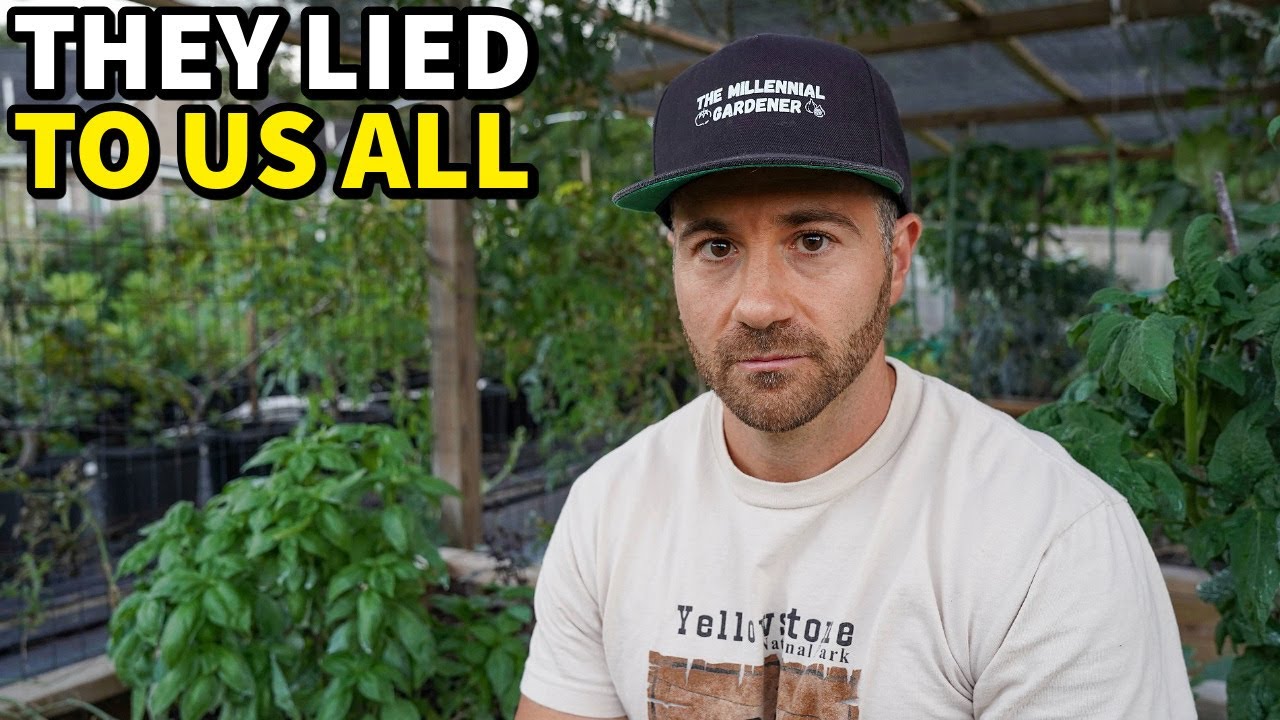You’ve been told one thing about your garden, but the truth is far from what you’ve believed. For years, you’ve trusted everything you were told, only to discover that everything you knew about your garden was a lie. It’s time to uncover the hidden truths and reclaim your backyard paradise.
Introduction
Imagine thinking you’ve been in on a secret, only to realize the whole story was spun with a few misleading threads. That’s exactly the feeling I got when I watched The Millennial Gardener’s latest video, titled “They Deceived Us About Our Garden This Entire Time.” It’s a kibble-full of truth bombs that dismantle the comforting myths we’ve clung to—myths we didn’t even realize were sabotaging our vegetable gardens. Somehow, amid the endless stream of tips, tricks, and “best practices” peddled by gardening influencers, we’ve been led astray by misconceptions that could make even the most seasoned grower scratch their head and ask, “Wait, really?”
This isn’t just another how-to clip; it’s a reality check that slices through the shroud of gardening fallacies with precision. From the dangers of mass planting to the importance of specialized fertilizers, the video is a treasure trove for gardeners desperate to cultivate effectively—without falling into the traps laid by outdated, overly simplistic advice. So, buckle up as we unpack the truths that The Millennial Gardener reveals—truths that might just change the way you nurture your leafy fortress and grow both smarter and healthier vegetables, flowers, and herbs.
Unmasking Myths in the Gardening Community
In the lush, earthy world of gardening, there’s an unspoken tradition—an unexamined trust handed down from one eager gardener to the next. But as The Millennial Gardener points out, much of what we believe about growing vegetables and flowers is sprinkled with myth and misconception. Take mass planting, for example—something we’ve seen glorified on social media as a sure way to impress neighbors and fill fences with bounty. Yet, the truth is, it can suffocate plant health, creating a battleground where weak plants struggle to thrive amidst overcrowded roots and depleted soil.
We’ve also blindly accepted the notion that bigger is always better—bigger planters, larger mulch beds, or sprawling gardens that swallow your backyard in a sea of green. But size without strategy is just a recipe for chaos. Overplanting can lead to poor air circulation, increased pest pressure, and nutrient deficiencies. Instead, the wise gardeners in the know advocate for thoughtful spacing, protective barriers like insect netting, and targeted fertilization—things often glossed over in viral garden tutorials. Once you see past these falsehoods, the garden suddenly feels less like a battlefield and more like a well-orchestrated symphony of growth.
This revelation about myths isn’t just about correcting misinformation; it’s about empowering yourself to develop good habits. Things like proper pruning with tools such as pruning snips, using water wands for even hydration, and choosing organic fertilizers like fish emulsion or Bone Meal long-term—they’re vital pieces of the growth puzzle. The truth from experienced growers is that often, the simplest changes—beyond the clickbait—yield the most profound results.
Surprising Truths & Effective Gardening Techniques
The joy of this revelation isn’t just in debunking myths; it lies in uncovering surprisingly simple yet effective practices that transform your garden’s health. For example, did you know that using mineral supplements like Azomite or trace minerals can dramatically revitalize tired soil, giving your plants a boost they desperately need? These aren’t fancy gimmicks—they’re ancient secrets rediscovered through science, ready to invigorate your beds with vitality. The same applies to specialized fertilizers like Jack’s 20-20-20 or blossom boosters, which provide targeted nutrients that encourage robust foliage and prolific fruiting.
Get this: organic fertilizers—like Fish Fertilizer, Espoma PlantTone, and Bone Meal—are not just environmentally friendly; they also promote a healthy microbial life in your soil. It’s akin to giving your plants a natural multivitamin, ensuring they aren’t just surviving but thriving. And if you’ve been guilty of overwatering with a spray bottle or aiming for “set it and forget it” watering, a watering wand is your secret weapon—delivering consistent moisture while preventing disease.
The video also offers insights on tools that make gardening less laborious and more precise. Pruning snips improve cut quality and reduce plant stress, while planting in grow bags or using weed barriers keeps invasive weeds at bay, saving your garden from the endless tug-of-war with unwanted plants. Watching The Millennial Gardener’s tips carefully, you realize that gardening isn’t about mastering impossible techniques—it’s about understanding your specific zone, like 8B in North Carolina, and tailoring your approach accordingly. The videos reveal that proper maintenance, paired with proven products—whether it’s shade cloth on blistering summer days or insect netting for pesky bugs—turns your backyard into a sanctuary of vitality.
The Power of Community & Curated Resources
One of the greatest revelations from the video is the importance of accessing reliable, curated information in a sea of misinformation. It’s comforting to know that you aren’t alone in your quest for a thriving garden—thanks to videographers like The Millennial Gardener, who act as guiding lights. Their curated Amazon store offers everything from gardening tools—like pruning snips, sprayers, and watering wands—to essential supplies such as weed barriers, shade cloth, and insect netting. Navigating this curated collection makes shopping less overwhelming and ensures you’re investing in quality products that actually work.
Moreover, supporting content creators by exploring their merchandise and secondary YouTube channels not only rewards the effort they put into sharing tested guidance but keeps the community vibrant. Following them on social media platforms like X (formerly Twitter) and Instagram yields a treasure trove of real-time tips, troubleshooting advice, and success stories from fellow gardeners. It’s a living, breathing network—part advice column, part garden therapy—where one can drown out the noise of misinformation and tap into honest expertise.
This sense of community underscores an essential truth: gardening isn’t just about plants; it’s about shared experiences and continuous learning. The creator’s practical insights foster a deeper understanding of climate-appropriate practices, especially in Southeastern North Carolina’s Zone 8B, where subtleties like soil type and local pests can make or break the season. Armed with curated tools and a supportive network, you’re not just cultivating vegetables—you’re cultivating confidence.
Frequently Asked Questions
Q1: How can I distinguish between garden myths and scientific gardening advice?
A1: Start by consulting reputable sources like university extension services, experienced gardeners with proven track records, and well-reviewed gardening books. Question sensational claims, and look for advice backed by science—such as soil tests and peer-reviewed studies. Watching creators like The Millennial Gardener, who base their tips on research and firsthand experience, can further clarify what’s myth and what’s fact.
Q2: Why is mass planting considered harmful, and what should I do instead?
A2: Mass planting often leads to poor air circulation, increased disease spread, and nutrient competition. Instead, stagger your plantings for better airflow, provide ample space for roots to grow, and incorporate crop rotation to keep soil healthy. Using proper spacing with the help of garden planning tools ensures each plant gets its fair share of nutrients and sunlight.
Q3: Which organic fertilizers are best for enriching my soil in Zone 8B?
A3: Fish fertilizer, Bone Meal, and Espoma PlantTone are excellent choices. They promote microbial activity, enhance soil nutrition naturally, and support healthy plant development. Pair these with mineral supplements like Azomite for a balanced, nutrient-rich environment that encourages vigorous growth.
Q4: How do tools like pruning snips and watering wands improve my gardening routine?
A4: Pruning snips allow for clean cuts, reducing plant stress and preventing disease entry points. Watering wands deliver even moisture, ensuring roots get the water they need without overdoing it—key in avoiding root rot or canopy diseases. These tools make maintenance easier, more precise, and more effective.
Q5: What are some of the must-have products recommended by The Millennial Gardener for a successful vegetable garden?
A5: Essential items include grow bags for root aeration, insect netting to keep pests at bay, shade cloth during scorching summer months, and weed barriers for weed suppression. Supplement these with quality fertilizers, watering tools, and soil amendments to create a thriving, nourishing environment for your vegetables to flourish.
Final Thoughts
Gardening has always been a dance of hope, science, and educated guesses—plus a dash of stubborn optimism. The revelations from The Millennial Gardener’s video peel back the curtain on decades of unfounded assumptions, empowering us to approach our gardens with clarity and purpose. There’s a certain freedom in realizing that many of our frustrations stem from misconceptions, and that with a bit of research, patience, and the right tools, we can turn our patch of earth into a true paradise.
As I reflect on the lessons learned, I’m reminded that gardening isn’t just about cultivating plants but about cultivating knowledge, resilience, and community. Every misstep, like overplanting or neglecting soil health, becomes a lesson when seen through the lens of experienced growers—those who have navigated the pitfalls and emerged wiser. Thanks to thoughtfully curated resources, honest advice, and a community eager to share, our gardens can thrive in ways we never imagined, even in a challenging Zone 8B. The truth is, once you discover the real science behind thriving plants, the garden ceases to be a mysterious, chaotic world and becomes a sanctuary of well-earned health and bounty.

